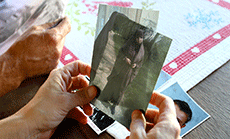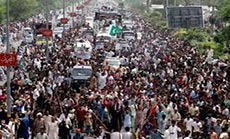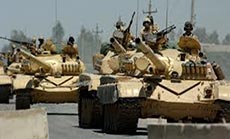
Rizk’s Efforts, Siniora’s Cooperation, Harri’s Information, Murr’s Interception

Mariam Ali
No surprises for anyone who viewed the Wikileaks documents before issuing the charge sheet in the assassination of Rafik Hariri, and before the publication of Der Spiegel's famous essay.
Accusation fingers addressed Hizbullah before the end of the criminal investigation. French diplomats and former Lebanese Minister of Justice as well as the Attorney General shared in the international road map to target the party. Former Prime Minister Saad Hariri linked Hizbullah to al- Qaeda.
Road Map to Hizbullah:
A few months after the assassination of former Prime Minister Rafik Hariri in 2005, one diplomatic cables from the U.S. Embassy in Paris (number 05PARIS6067 Date September 8, 2005) pointed to a French orientation to consider Hizbullah a part of the fundamental problem, before the emergence of accusation fingers elements of party's involvement in the assassination of Hariri, as stated in the telegram, which included the minutes of talks between Deputy Secretary of State Daniel Fried and his French counterpart Jean-Francois Thibault: "According to the French view, Lebanon will enter a very serious stage but until now, that progress has been relatively easy , and now we approach the fundamental problem, which includes Syria, Iran and Hizbullah".
During a meeting with the former Lebanese Minister of Justice Charles Rizk and Judge Shukri Sader, the U.S. Ambassador to Lebanon Jeffrey Feltman delivered U.S. Department of Justice request "to receive the so - called four "terrorists": Mohammad Ali Hamadeh, Hassan Izz-al-Din, Ali Atwi, Imad Mughniyeh, whom the US views as responsible for the hijacking of "T-TWA 847 »in the eighties of the last century" (cable number 06BEIRUT1001 Date March 30, 2006)."
Rizk's Great Efforts
Rizk presented to the ambassador a document prepared by both Sader and the Prosecutor Saeed Mirza that clarifies that the Ministry of Justice has no choice but to make a recommendation to the Lebanese government to refuse U.S. government's request.
However, Rizk added: lead us to the way on how to be committed to your request. He said that he would delay the book to the State Department, hoping that the U.S. government returns to him with questions and objections. At the end of the minutes of this meeting, Ambassador Feltman added the following comment: "Rizk and Sader worked hard to prove that they did not object the US government's request to deliver the accused persons, and that they were taking this issue seriously.
Feltman had discussed the topic of delivering Mohammad Ali Hamadeh, Hassan Izz-al-Din , Ali Atwi, Imad Mughniyah to the U.S. judicial authorities with the former Lebanese Prime Minister Fouad Siniora (cable number 06BEIRUT304 date of February 2, 2006) in the government house in the first of February. According to the text of the telegram "despite the ongoing crisis on the withdrawal of Shia ministers from the government, debate on U.S. government request on dealing with the so- called "fugitives from justice" Muhammad Ali Hamadeh, Hassan Izz-al-Din, Ali Atwi, Imad and Mughniyeh took priority over other things."
The telegram said that "the prime minister, accompanied by his senior adviser Mohammed Shatah, who had met the mother of Robert Stethem expressed their sympathy with her after the death of her son."
Siniora: US Partner
Siniora and Shateh explained to the ambassador that the government will do all it can to comply with the U.S request but they must respect the Lebanese law. Siniora asked the U.S. government to understand the political realities in Lebanon during this phase stating that he believes that nothing is better for President Bashar al-Assad, and radical elements in Hizbullah and rejecting Palestinian groups, than that the issue of Hamada hurt relations between the United States and the Siniora reform government."
The attorney general of the International Tribunal for the assassination of former Prime Minister Rafik Hariri, Daniel Bellemare (who was at that day the Centre Chairman of the International Independent Investigation Commission) told officials at the U.S. Embassy in Beirut on January 31, 2008 information about investigation. Hinting at the involvement of Hizbullah in the Eid's crime (the officer, who was assassinated in January 2008and was concerned with analysis of communication related to the assassination of Hariri and other assassinations and the activities of Hizbullah) Bellemare said the attack leads to two theories: The attempt to repel the progress of tribunal's work, or to prevent the Lebanese government from investigating Hizbullah. "In both cases," said Bellemare, "assassination showed that the killers are in applying a wrap process, and the international investigation committee must to respond to them."
During the same year, the Lebanese Justice Minister Charles Rizk devoted to point fingers towards Hizbullah. In the text of the telegram number 09BEIRUT837 Date 06/04/2008 of the meeting between Rizk and U.S. Ambassador in Lebanon Michele Sison during which Rizk said "Bellemare lives in a protected fortress outside Beirut, in contrast to the Prosecutor General of Lebanon in this case (the assassination of Hariri) Sami (meaning Said Mirza), that received specific personal threats from Hizbullah."
Jumblatt: Eid's Death Linked To Hizbullah
For his part, Walid Jumblatt revealed to Ambassador Sison (cable 08BEIRUT490 Date 04/08/2008) that "the International Independent Investigation Commission in the assassination of former Prime Minister Rafik Hariri received a very severe blow".
He explained that "according to information obtained from the Director of Intelligence Internal Security Forces, Colonel Wissam al-Hassan yesterday evening, that Wissam Eid Holiday, who worked with Hassan and was assassinated on January 25, had discovered a year and a half ago a link between Abdul Majeed Qasim Gamlosh and a network of 17 mobile phone numbers, and the Chairman of the International Commission of Inquiry Serge Brammertz did not act according to these information."
At this point, Sison noted to sources of the international investigation committee that "assured us that Eid met Gala Bellemare week before his death". She concluded "that the assassination of Hizbullah leader Imad Mughniyeh two weeks later led to Jumblatt's conviction that there is a link between Gamlosh and Mughniyeh if the first is still alive."
Hariri: Hizbullah linked to al- Qaeda
PM Saad Hariri described the Arab League meeting in the February 24, 2008 as "useless". During his meeting with Ambassador Sison on February 25, 2008 (telegram number 08BEIRUT302 Date 26/02/2008) the text of the telegram stated that "Saad did not know to what extent the assassination of Hizbullah military leader Imad Mughniyeh will affect the Syrian-Iranian relations, but he believes that Hizbullah would respond in some way to "Israel"."
"Last permits issued by the General Command of Iran revealed the nature of the relationship that developed between Iran, Hizbullah and al-Qaeda, which was involved in the attack on Khobar Towers in 1996," Hariri said reiterating that the Iranians and the Syrians were involved deeply in al-Qaeda "Why the Syrians investigate who killed Mughniyah, and don't investigate how he was killed on the Syrian territory?"
"Hizbullah enters people's homes in Lebanon, leading to security incidents; while Saad use all his force in the future stream to control the clashes."
After showing some of the photographs, Hariri said that the headquarters of the Future Movement was hit by 300 bullets during the incident on February 11. "Hizbullah is preparing for something," Saad warned. He pointed out that the Iranian ambassador canceled a previously planned meeting with him a few weeks ago, after Hariri attacked Iran in one of his speeches. Saad said that "he will deliver a speech soon in which the same hardness will be used against Iran."
Murr: We Intercepted Nasrallah phone calls
Cable No.: 05BEIRUT3670
Date: November 14, 2005 8:51
Subject: Defense Minister Murr: Army is incapable of confronting the militias
Relevance of Christopher and Murray, the Chargé d'affaires.
Dibble noted that it would be difficult to achieve any change in Lebanon, as long as the private armies, like Hizbullah act according to their own will. Murr responded that, despite his approval of the above statement, he notes that "the Lebanese army is not ready to deal with the militias. It does not have the military equipment and necessary training, or even the required mentality to do so. The army would need a period of 6 or 8 months so that we can rely on it," al- Murr added.
The ambassador asked Murr about the potential cooperation between the army and foreign countries that intends to provide support and assistance.
In turn, Murr asked about the legal status of this plan. "Prime Minister Fouad Siniora, during the absence of Murr, agreed on US evaluation on the Lebanese army, as long as it is away from light. The first teams will arrive in November. Murr agreed on this initiative, and promised to raise the issue with the commander of the Lebanese army, which will meet him later that afternoon."
Moreover, Murr expressed his considerable concern at the adoption of a more hostile Hizbullah position when Detlev Mehlis issued his report on 15 December. At that point, Murr reported that Hizbullah, in compliance with Syria's orders, will try to ignite a Sunni-Shiite fighting in Lebanon. Murr claimed he knew Hizbullah plans after intercepting a phone call between the Secretary General of Hizbullah Sayyed Hassan Nasrallah, and journalist in "as-Safir" newspaper, Ibrahim al-Amin. According to Murr's opinion that although this "the true face" would be a threat to Lebanon, but at least will allow other Lebanese to finally realize the nature of what they are facing.
Source: al-Akhbar newspaper
Comments

FBI: US Girls may Have Tried to join ’ISIL’
9 years ago

